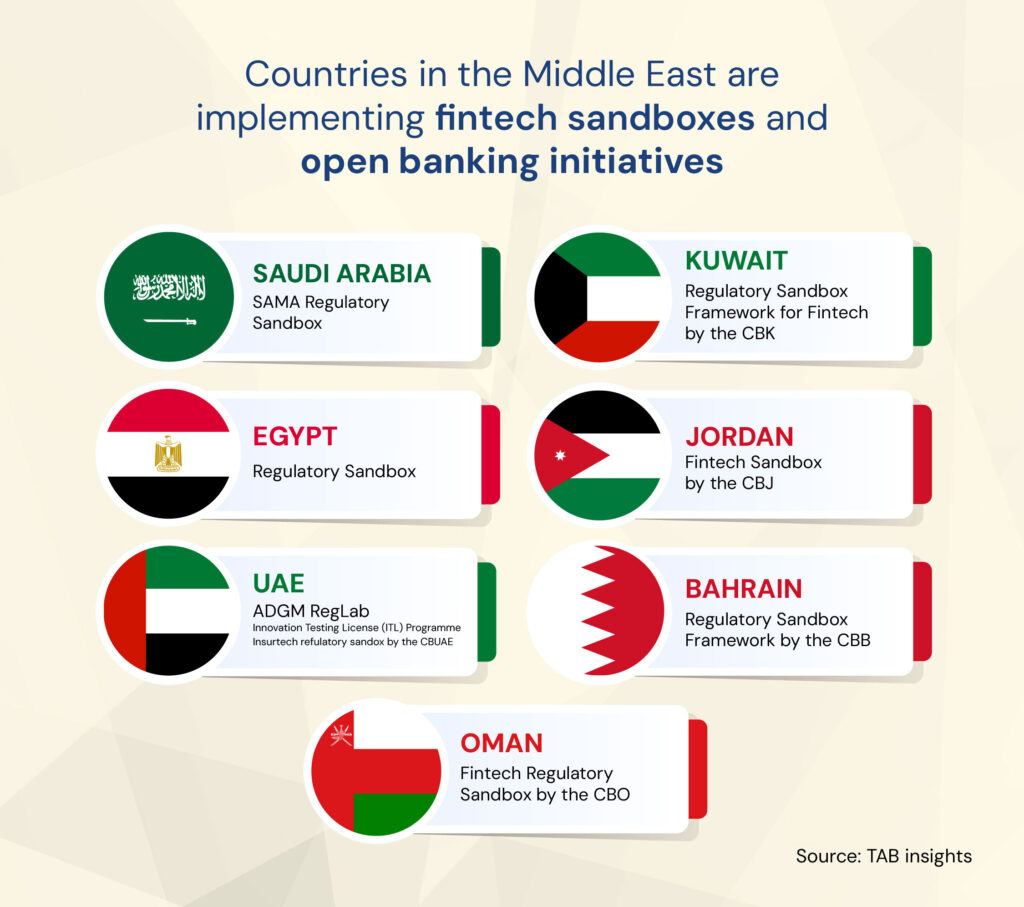The ever-changing banking landscape in the Middle East
The Middle Eastern financial landscape is undergoing a major transformation, with institutions managing over $3 trillion in assets. This surge not only highlights the region’s economic strength but also presents numerous opportunities for growth and development.
At the heart of this transformative journey lies the pivotal adoption of open banking and API banking. As institutions leverage open application programming interfaces (APIs) to foster collaboration, innovation, and enhanced financial services we see a slow and significant departure from traditional banking norms. The integration of open banking principles is reshaping how financial institutions operate and interact, ushering in a new era of connectivity, accessibility, and dynamic financial solutions.
This shift is poised to redefine the Middle East’s financial landscape, creating a platform for continued innovation and economic advancement. Let’s look at the how and the way forward.
FinTech sandbox, open banking, APIs and so begins the banking Renaissance
Let’s look at how the governments in the region have been enabling this digital shift.
Governments have been actively promoting this shift by implementing forward-thinking regulations designed to promote the adoption of digital technology. These regulatory initiatives serve as catalysts, propelling the banking sector into a dynamic digital age.
In the Middle East, open banking and bank APIs are reshaping the financial landscape. They are creating pathways for collaboration between third-party providers and financial institutions, bringing about significant changes in the modern financial ecosystem.
According to Fintech Times, the Middle East’s Fintech ecosystem is thriving, especially with traditional banking taking a more holistic approach. Countries like Dubai and Saudi Arabia are embracing open banking and API systems, with over 10,000 financial institutions adopting these systems. Dubai leads with 99% penetration, followed by Saudi Arabia at 96%, thanks to improved internet access enhancing the banking customer experience.
In 2018, the Saudi Central Bank (SAMA) established a regulatory sandbox to foster fintech innovation in a controlled environment. By 2019, the number of licensed fintechs doubled from seven to 14, particularly in payments. In 2020, SAMA introduced payment services provider (PSP) regulations, licensing 15 companies. To encourage open banking, regulators are taking diverse approaches, from market-driven initiatives to standardisation and compliance enforcement. For instance, Tarabut Gateway is creating a universal API platform connecting banks with third-party providers in Saudi Arabia, UAE, and Bahrain. In January 2021, SAMA announced its own open banking policy set to take effect in mid-2022.
And the list goes on…!
The region’s commitment to open banking is seen as a key driver for innovation, collaboration, and the continued growth of the fintech ecosystem.

